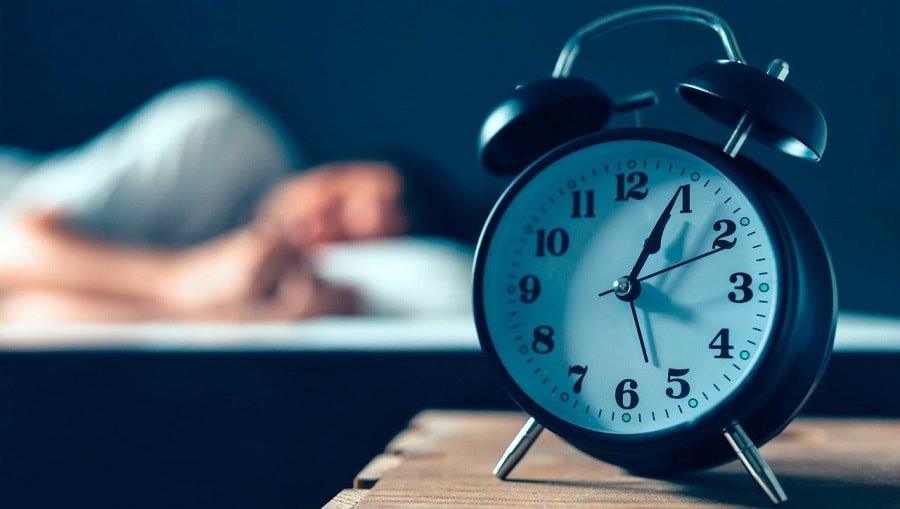Good Night’s Sleep – Part of a healthy & good life is getting plenty of rest or sleep. After all, sleeping isn’t tricky. Yet, around 35% of people battle to sleep soundly or fall asleep when they’d like to.
It Reduces Stress and Blood Pressure Getting enough quality sleep stimulates relaxation that could reduce blood pressure and maintain firmer control. Higher blood pressure raises your chances of heart attacks and strokes, but getting lots of restful sleep encourages a constant state of relaxation that can help decrease blood pressure and generally keep it under control.
By making sure you get enough rest, you can avoid the adverse physical effects of stress. When you are tired, you are less patient and easily agitated, which can increase anxiety.
Most adults’ peoples need 7-8 hours of sleep per night. Practicing good sleep cleanliness, along with stress-lowering tactics, can help improve quality sleep.
Sleep might be right for us, but how much do you know about the some health benefits of getting a good night’s rest each night? It is interesting to find how people are ready to spend on their wants more than their requirements but seriously, having a tad more shut-eye can make you feel fresh.
Read Here, 10 Health Benefits Of a Good Night’s Sleep
Reduce Inflammation
Enhanced stress hormones caused by lack of sleep raise the level of inflammation in your body. These dieses can generate heat, pain, redness, and swelling. Protect yourself against Inflammation and chronic disease by getting more than 6 hours per night sleep. Swelling is thought to cause the body to deteriorate as we age.
Regular Exercise or Yoga
Even a little bit of exercise or yoga every day will help you sleep better as long as your workout isn’t within 3 hours of when you want to turn in. If you miss your workout during the day, low-impact activities like yoga or stretching in the evening can help increase healthy sleep.
Improved Memory
A rested brain and body allow you to process and retain information much more efficiently and enable you to absorb new information much better.
If you’re sleep-deprived, you will struggle to understand and focus, let alone memorize things. These impacts are something we can feel by ourselves without requiring any scientific facts to enlighten us. So getting more quality sleep will help you remember and prepare things better.
Sleep May Help You Lose Weight
Poor sleep is linked to obesity. Sleep helps regulate the hormones that manage your appetite, which explains why you may feel hungrier on days that you have not slept well. Insufficient sleep may also impact your metabolism.
Sleep plays a role in keeping your heart and blood vessels. People with sleep problems have a 50% higher risk of developing and dying of heart disease.
Reduces Risk of Diabetes
Those of us who sleep less than 6-7 hours a night are at a higher risk of contracting diabetes, leading to other diseases such as a stroke, damaged organs, and blindness.
May Prevent Cancer
People working late night shifts have a higher risk for breast & colon cancer. The extra light exposure at night overcomes melatonin production. Melatonin is a hormone that makes us sleepy & appears to stop the growth of tumors. Keep your bedroom dark to help produce melatonin.
Keep Your Heart Healthy
Lack of sleep has been connected with high blood pressure & high cholesterol. Your heart will be healthful if you get 7-9 hours of sleep a night.
A Good Night’s Rest Boosts your Sex-drive
Keeping those ZZZs humming maintains high testosterone levels, inhibits Erectile Dysfunction (ED) or Impotence, and you are never too exhausted for some fun with your significant other. If you make your night pleasurable and romantic, take it Sildenafil Fildena 100 and Vilitra 20 Pills.
Sleep can make you smarter
Along with an excellent night’s sleep, grabbing a fast nap in the daytime can contribute towards making your brain more efficient and productive.
You won’t positively be answering all the questions on University Challenge, but you may well feel sharper, more attentive, and focused throughout the day.
How much sleep do I need each night?
Everyone needs different amounts of sleep, but adults need between 7 and 9 hours of sleep on average. We need the same quantity of sleep as we get older, but we are less able to stay asleep as we age.
End Line
A regular health habit of getting enough sleep is the simplest and most pleasant way to lose weight, eliminate brain fog, and increase your longevity. Commit to getting a good night’s sleep every day and sleep your health difficulties away!

